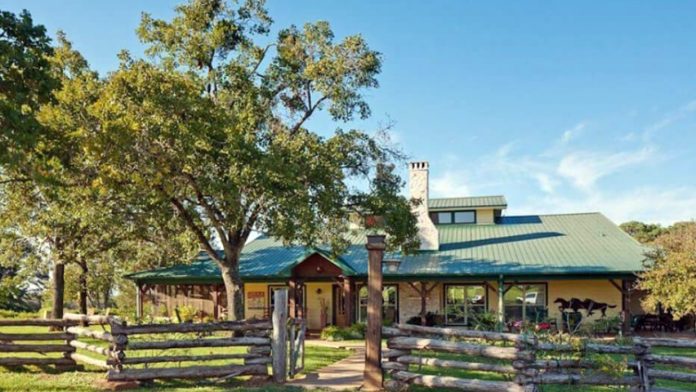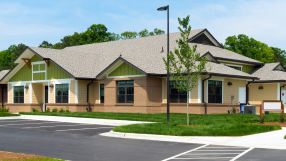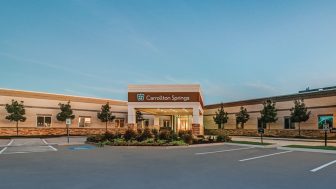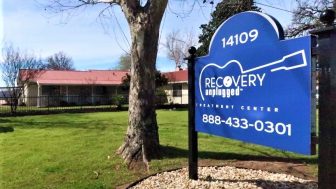The Last Resort
1620 FM 535
Smithville, TX 78957

About The Last Resort
The Last Resort provides alcohol and drug rehab support in Smithville, Texas, to men seeking recovery from addiction. Their levels of care include detoxification, residential treatment, and intensive outpatient treatment. They also provide a specialty track for military personnel and Veterans, along with professionals who desire a discrete treatment option. Their programming is available to adults aged 18 and over. They also support individuals with transitional living and aftercare services.
The Last Resort provides evidence-based treatment interventions and mental health counseling to address a wide variety of concerns. Individuals with dual diagnosis will receive mental health counseling and addiction treatment concurrently. Those with trauma or PTSD may receive trauma-informed care. The Last Resort provides 12 Step integration services, the Healing Heart Program, equine assisted therapy, individual therapy, group therapy, family therapy, skills building classes, and educational programming. They accept most major medical insurance plans and are accredited by LegitScript.
Amenities

Adventure Therapy
Hiking is a great way to relieve stress, get perspective, navigate challenges, connect with nature, and improv...e your health - all essential components of sustaining long-term recovery. Studies also show that the body releases endorphins during physical activities like hiking. These endorphins improve mood and act as a natural pain reliever.
Luxury Rehab
Luxury rehab is a form of treatment offered in a residential, resort-style setting. You’ll receive personali...zed treatment from staff and clinicians, have access to forms of treatment that go beyond what a typical inpatient rehab offers, and offer specific amenities like ocean views, large single occupancy bedrooms with private baths, and complementary spa treatments like massage, acupuncture, or reiki. Most luxury rehab centers have a limited number of beds.
Meditation Room
Yoga and meditation are great activities to support your recovery process during alcohol or drug rehab. These ...therapies have been around for centuries, and they are an effective way to improve well-being. Combining addiction treatment, yoga, and meditation can reduce cravings, improve sleep, relieve anxiety and depression, provide stress relief, promote relaxation, support emotional healing, and improve energy levels.
Private Rehab
Private drug rehab provides a comfortable, secure environment that allows you to focus on doing the work to ge...t your life back on track. Benefits include a higher staff-to-client ratio, increased one-on-one time with therapists and healthcare providers, private rooms for clients, and customized forms of therapy.
Rec Room & Activities
Recreational therapy uniquely combines therapeutic interventions with an activity, like horse-riding, hiking, ...wilderness therapy, basketball, tennis, or a full workout. Benefits of recreational therapy include providing a healthy way to work through the emotions of recovery, learning to build and maintain relationships, improving communication skills, and building self-esteem.
Swimming Pool
Swimming increases blood flow to the body and brain, boosts white blood cells, and improves muscle strength, l...ung capacity, and overall stamina. Drug rehabs with a swimming pool offer physical and mental benefits to complement the recovery process.
Wilderness Setting
Wilderness rehab programs offer all the benefits of a traditional drug rehab, but with the added benefits of o...utdoor adventure. Venture out into the forest to learn new skills, explore the beauty of nature, and relieve stress. Engaging in wilderness activities is a great way to gain self-discovery and release negative emotions.
Yoga Studio
Treatment centers with a yoga studio offer a special form of holistic therapy during the recovery process. Yog...a boosts mindfulness, a sense of calm, and healthy reflection during drug rehab via breathing exercises, stretching, and a progression of specific postures.Addiction Treatment Programs
Adult Program
The Lone Star State offers a host of options for those in search of an adult program in Texas. From inpatient to outpatient care, adults can find a program that meets their needs for effective treatment of substance use issues.Alcoholism
When you enter alcohol rehab in Texas, you’ll find support systems to help you on your recovery journey. Professional counselors, physicians, and other people in recovery provide services and support to help you make changes and learn how to enjoy a sober lifestyle.Animal & Equine Therapy
Animal & equine therapy are evidence-based complementary therapies drawing on the emotional, psychological, and physiological benefits of regular contact with animals. Addiction recovery programs may incorporate the care of therapy dogs, cats, horses, and other animals into their treatment model to support clients’ development of recovery-focused life skills, including personal responsibility, time management, and empathy. Contact with therapy animals may reduce stress, enhance mood, decrease depression and anxiety, and increase clients’ self-esteem and sense of wellbeing.Cognitive Behavioral Therapy (CBT)
The goals of cognitive behavioral therapy in Texas include evaluating thoughts and changing thinking patterns that are leading to substance use. This treatment helps participants understand their motives and problem-solve to work through challenges without the use of substances.EMDR Therapy
EMDR Therapy is a neurobiological treatment modality used to address trauma disorders and related mental and behavioral health challenges. Short for eye movement desensitization and reprocessing, EMDR is designed to help clients cope with distressing memories and emotions, including fear, sadness, and anger. EMDR may help clients in addiction recovery manage the psychological and emotional triggers that contribute to substance misuse and/or addiction relapse.Fitness Therapy
Fitness therapy is an evidence-based complementary approach to addiction recovery and mental health care. Based on mounting scientific evidence of the benefits of physical activity in improving mood, enhancing clients’ sense of wellbeing, and decreasing depression and anxiety, fitness therapy encompasses a wide spectrum of intensities, from gentle yoga, qigong, and tai chi to weight training, kickboxing, and other highly physical activities.Men's Rehab
Men’s rehab in Texas can create an environment that makes men more comfortable. Many men in Texas seek out this type of treatment for its gender-specific benefits.Opioid Treatment
Through therapy, counseling, and medication assisted treatment, individuals in opioid rehab in Texas gain the skills they need to live a healthier life. The goal is to help you take control of your life and prevent relapse.Teen & Adolescent Program
The goal of a young adult program in Texas is to set young people free from the effects of addiction and give them the skills they need to successfully navigate early adulthood. This is accomplished with age-appropriate settings, therapies, and activities.Levels of Care
Detox & MAT
Detox in Texas is your first step toward a drug-free future. During this phase, your systems are cleansed of a...ll addictive substances. You’ll receive 24/7 care, which may include medication to alleviate withdrawal symptoms.Inpatient Rehab
Inpatient drug rehab in Texas can last from a few weeks to mor than 90 days. During that time, you live at the... facility and receive round-the-clock supervised care. Treatment typically includes individual and group therapy.Aftercare & Alumni Program
The initial weeks and months after rehab treatment are often the most difficult. Aftercare rehab in Texas is d...esigned to help you successfully navigate these challenging times and maintain sobriety. You’ll receive emotional, mental, and practical supports, for up to a year or more after treatment.Dual Diagnosis & Mental Health
A dual diagnosis treatment center in Texas provides programs for people who struggle with both substance abuse... and mental illness. Treating both disorders through an integrated approach is essential for recovery.Drug & Alcohol Intervention
A valuable tool for drug rehab in Texas is intervention services. This treatment tool provides education and r...esources on how to stage an effective intervention as well as professional assistance with facilitating the intervention. Staff then follow up with support to develop an effective treatment plan.Accreditations

NAATP

CARF

State License #:
3650Insurance
 Payment Plans & Financing
Payment Plans & Financing
For those who are underinsured or uninsured, paying the total cost of a rehab program up front is not feasible.... Fortunately, many alcohol and drug rehabs make financing available to potential clients through private loans, in-house payment plans, or partner lenders. You can choose a finance package that lets you start treatment immediately and pay for it later.
 Private Insurance
Private Insurance
If you have private insurance, you can use it to help cover the cost alcohol and drug rehab in Texas. The amou...nt covered may depend on your policy and whether the treatment center is in-network or out-of-network. You may be left with some costs like a co-payment, or co-insurance. Check with your insurer for more information.
 Self-Pay Options
Self-Pay Options
You have the option to pay for your alcohol and drug rehab in Texas, out-of-pocket (also called self-pay or pr...ivate pay). Self-pay allows you to take control of the cost of your recovery journey and gives you access to all levels of care — including detox in Texas, and inpatient rehab in Texas — that might otherwise be limited by insurers or government-run programs.Contact The Last Resort




